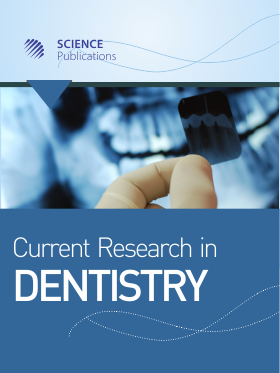Effect of Saliva Moistening on Shear Bond Strength of Self Ligating Orthodontic Brackets
- 1 University of Pavia, Italy
Abstract
Problem statement: The purpose of the present study was to compare Shear Bond Strength (SBS) and bond failure site of conventional and Self-Ligating (SL) orthodontic brackets, bonded on dry and saliva contaminated enamel. Approach: One conventional and three different types of self ligating stainless steel brackets were bonded onto 160 bovine permanent mandibular incisors, divided randomly into 8 groups, using Transbond XT adhesive system. For each type of bracket, 20 samples were bonded on dry enamel and 20 after saliva contamination. After 24 h all specimens were tested for SBS using an instron universal testing machine and Adhesive Remnant Index (ARI) were evaluated. Results: Saliva contamination significantly lowered SBS of conventional brackets. For self-ligating brackets no significant strength reduction was recorded. Conclusion: All the groups showed clinically adequate mean shear bond strengths. ARI scores in contaminated groups resulted lower than in dry groups.
DOI: https://doi.org/10.3844/crdsp.2010.23.28

- 5,807 Views
- 3,888 Downloads
- 0 Citations
Download
Keywords
- Self-Ligating (SL)
- Shear Bond Strength (SBS)
- Adhesive Remnant Index (ARI)
- contaminated groups resulted
- frequent encountered contamination
